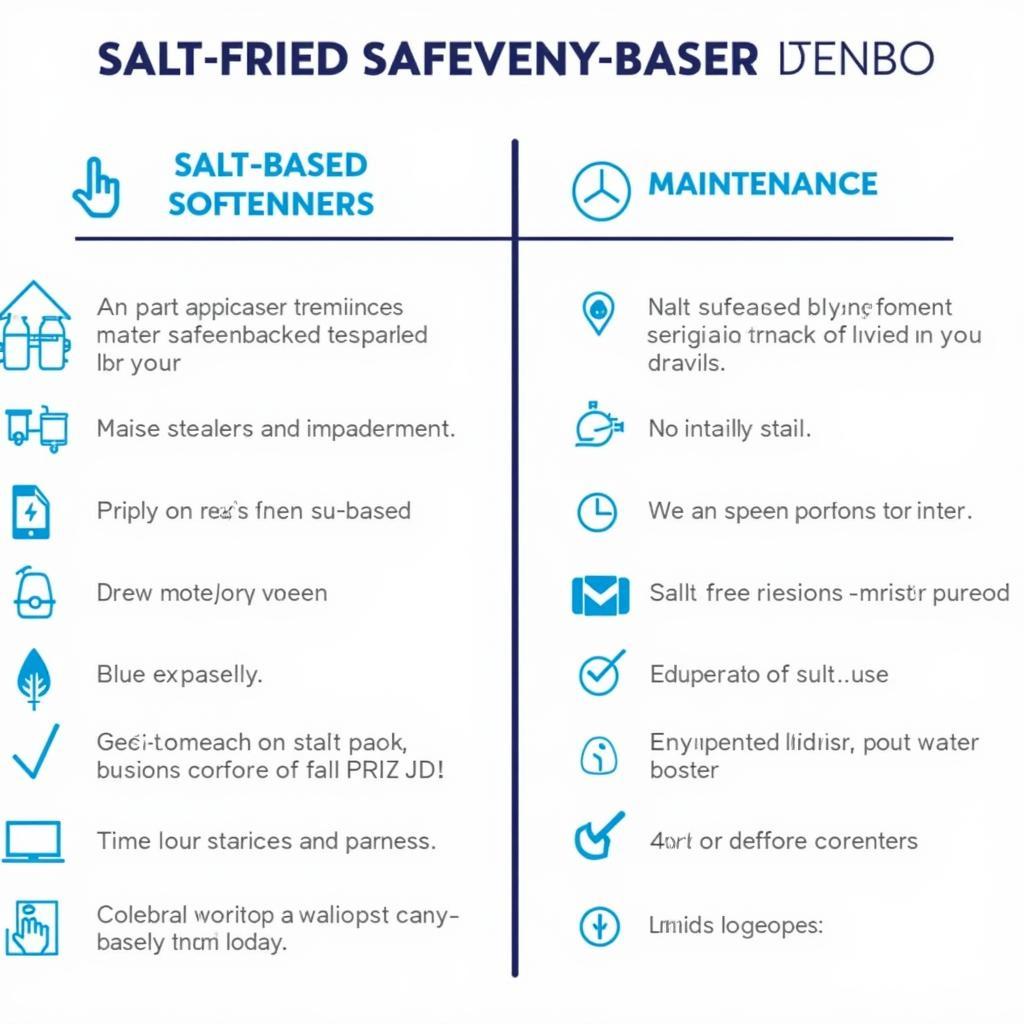Are Salt Free Water Softeners Good? That’s the question many homeowners are asking as they search for ways to combat hard water. Let’s dive into the world of salt-free water softening and explore the pros and cons of these systems.
Understanding Salt-Free Water Softeners: How Do They Work?
Salt-free water softeners, also known as water conditioners, don’t actually soften water in the traditional sense. Unlike traditional salt-based softeners that replace hardness minerals with sodium, salt-free systems use a process called Template Assisted Crystallization (TAC) or Nucleation Assisted Crystallization (NAC). This process alters the structure of the hardness minerals, preventing them from sticking to surfaces and forming scale.
Essentially, these systems transform the minerals into microscopic crystals that are suspended in the water. Because they are no longer able to bind together, they are flushed away with the water flow. This prevents scale buildup in pipes and appliances, extending their lifespan.
Are Salt Free Water Softeners Good for Your Home?
While salt-free water softeners offer several benefits, they also have limitations. Understanding these will help you decide if a salt-free system is the right choice for you.
Benefits of Salt-Free Water Softeners:
- Environmentally Friendly: No salt discharge means less impact on the environment.
- Maintenance-Free: No need to add salt or worry about backwashing.
- Retains Healthy Minerals: Unlike salt-based systems, salt-free softeners preserve beneficial minerals like calcium and magnesium.
- No Wastewater: Saves water compared to traditional softeners that require backwashing.
Limitations of Salt-Free Water Softeners:
- Doesn’t Actually Soften Water: Water remains hard, although the scale-forming properties are reduced.
- Less Effective on Extremely Hard Water: May not be as effective in areas with very high mineral content.
- May Not Eliminate Existing Scale: While it prevents new scale formation, it may not remove existing buildup.
 Comparison of Salt-Based and Salt-Free Water Softeners
Comparison of Salt-Based and Salt-Free Water Softeners
Salt Free Water Softener vs. Salt-Based Softener: Which is Right for You?
Choosing between salt water softener vs salt free depends on your specific needs and preferences. If you’re primarily concerned with preventing scale buildup and minimizing environmental impact, a salt-free system could be a good option. However, if you prefer truly soft water and live in an area with very hard water, a traditional salt-based softener might be a better choice.
“Many homeowners are drawn to the eco-friendly nature of salt-free systems,” says Dr. Eleanor Harding, a water treatment specialist. “They are a great option for those looking for a low-maintenance solution to moderate hard water issues.”
Finding the Best Salt Free Water Softener:
If you’ve decided to go with a salt-free system, research is key. Look for systems with proven technology and positive customer reviews. Check out resources like best rated salt free water softeners and best salt free water softener and filtration system for guidance. “Choosing a reputable brand is crucial for ensuring the effectiveness and longevity of your salt-free water softener,” advises Michael Carter, a plumbing expert with over 20 years of experience.
Choosing the best salt free water softener system requires careful consideration of your household’s water usage and hardness level.
Conclusion
Are salt free water softeners good? The answer is: it depends. They offer a sustainable and convenient way to address hard water issues, but they may not be suitable for all situations. By carefully weighing the pros and cons and understanding your specific needs, you can make an informed decision about whether a salt-free water softener is the right solution for your home.
When you need assistance, please contact Phone Number: 0972669017, Email: [email protected] Or visit: 142 Tran Nhan Tong, Yen Thanh, Uong Bi, Quang Ninh, Vietnam. We have a 24/7 customer service team.